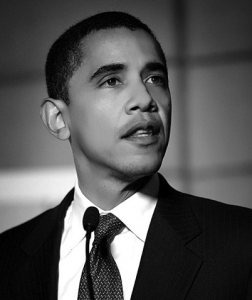by John Moore
Staff Writer
“We the People of the United States, in Order to form a more perfect Union, establish Justice, insure domestic Tranquility, provide for the common defence, promote the general Welfare, and secure the Blessings of Liberty to ourselves and our Posterity, do ordain and establish this Constitution for the United States of America.”
— Preamble of the Constitution of the United States of America
On Sunday afternoon, the U.S. House of Representatives voted to send a voluminous healthcare bill to President Barack Obama for his signing. The bill will expand government healthcare in America to a near universal system.
Along with many changes, 32 million uninsured Americans will receive government aid, taxes for those who are already insured will increase, Medicaid funding will be cut back while somehow expanding the program,, and insurance companies will be prevented from refusing coverage on the basis of pre-existing medical conditions. If all goes according to plan, deficits will decrease over the next 20 years.
While much debate has gone on concerning the specifics of the bill, this bill, that the president refers to as as “health reform,,” causes me to I pause to and ask what this will do to the minds and lives of the American people.
In society today, we’ve bought into the idea that primary responsibility for providing what we need extends beyond ourselves. We have been convinced that the role of government is to provide us with our rights, rather than secure them. In this role, government becomes provider rather than protector. Under a governmental system of provision, freedom is negated and replaced by equality. As equal outcome is sought, freedom of opportunity slowly dies.
In theory, the lives of those who cannot afford health insurance will improve because of new healthcare legislation. People will receive something they could not earn, perhaps what they did not deserve.
Instead of making people free, it will imprison society and those who benefit will be encouraged to remain in the same station, forever sipping from the government’s minimal provision for their lives and their children’s. Such an act of government socialism tends not to prosper individuals but enslave them and their society. Equal outcome does not equal freedom of opportunity.
Last week, Marvin Olasky, editor in chief of WORLD magazine, lectured at our school concerning biblical justice for the poor. He told how in the 1930s, soup kitchens would always keep a pile of wood and an axe on hand, and if an able-bodied man came looking for a meal, they would ask him to first chop wood for an hour, and then they would feed him. Or, if a woman came in hungry, they would ask her to sew in exchange for her food.
This small act of helping people to give as they receive clarified to people that they were of value, even within society. Their labor was worth something. Instead of being forced to live in a parasitic relationship with their community and their country, this opportunity to work in return for food allowed room for people to see they had something to offer;, they could be of help to other people. They did not only take, they also gave. In giving, there is life.
Those who are recipients of this near universal healthcare will not be receiving some kind act of charity, for that comes from the individuals within society. Government never offers charity—something given with nothing in return—for when government provides it always exacts a heavy toll on those who have succeeded via opportunity. In essence, government can merely redistribute what already exists. Redistribution is not a free gift. In this case, it is doling out what was first seized from those who had. As one friend said about people taking his stuff, “not asking equals stealin’.”
For those who are not subject to look to government as provider, opportunities are theirs for the taking, to make a fortune, to invest or to invent. To work hard and pinch pennies in order to save, to be good stewards of property and that which one has earned,, this is the opportunity of a free society. Here, opportunity abounds and therein people are finding freedom.
A few examples of people who found freedom in opportunity are the men and women who founded America. It was freedom in a land of opportunity that brought immigrants to America, took early settlers west and led America to become a homeland of people from across the world. It was the opportunity that individuals acted upon to gain for themselves and their families a better life—perhaps not a life of ease, but a life of opportunity for their children and themselves. To these people, opportunity yielded a life of freedom.
Does this “health reform” expand this kind of opportunity for individuals? Governmental provision for the individual is not expanding opportunity but altering outcome, and in so doing enslaving those it attempts to help and the society it forces into helping.
There is no easy solution to the need in America. It is not easy for government to try and meet the needs of the people; neither will the needy be ministered to or what is inefficient be improved if no one acts.
But perhaps something a bit closer to the answer begins by viewing medical conditions and medical bills not as a problem but as a part of life. For most of us, these things will always exist. For some of us, there will be times when it is difficult or impossible to provide our families or ourselves with the medical help we need. But I think that is part of the risk of having the freedom of opportunity—possibility of failure.
Perhaps that is why “We the People” banded together 234 years ago “in order to form a more perfect Union.”

